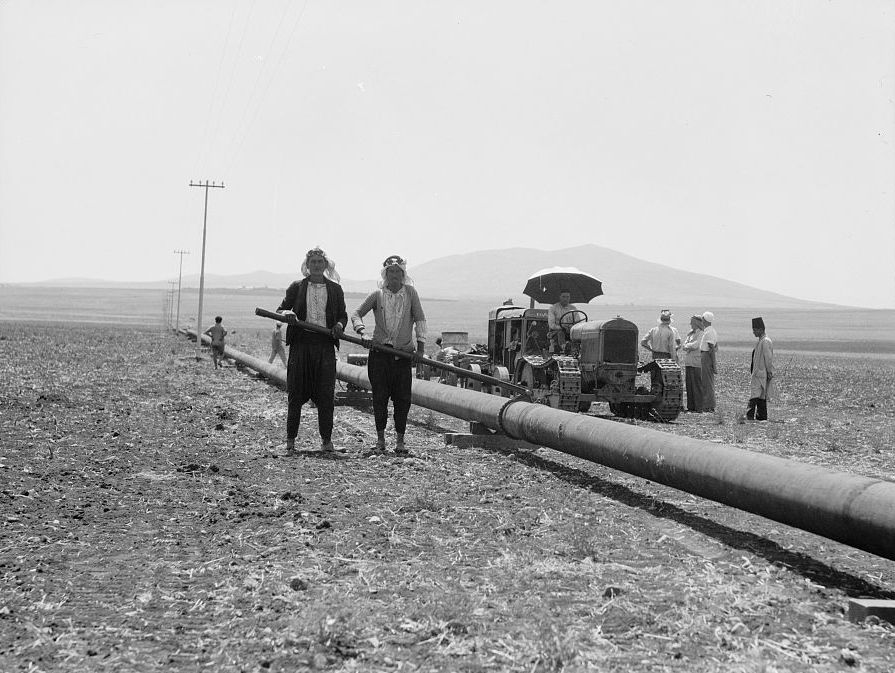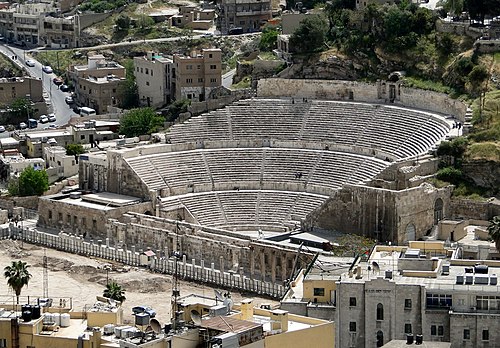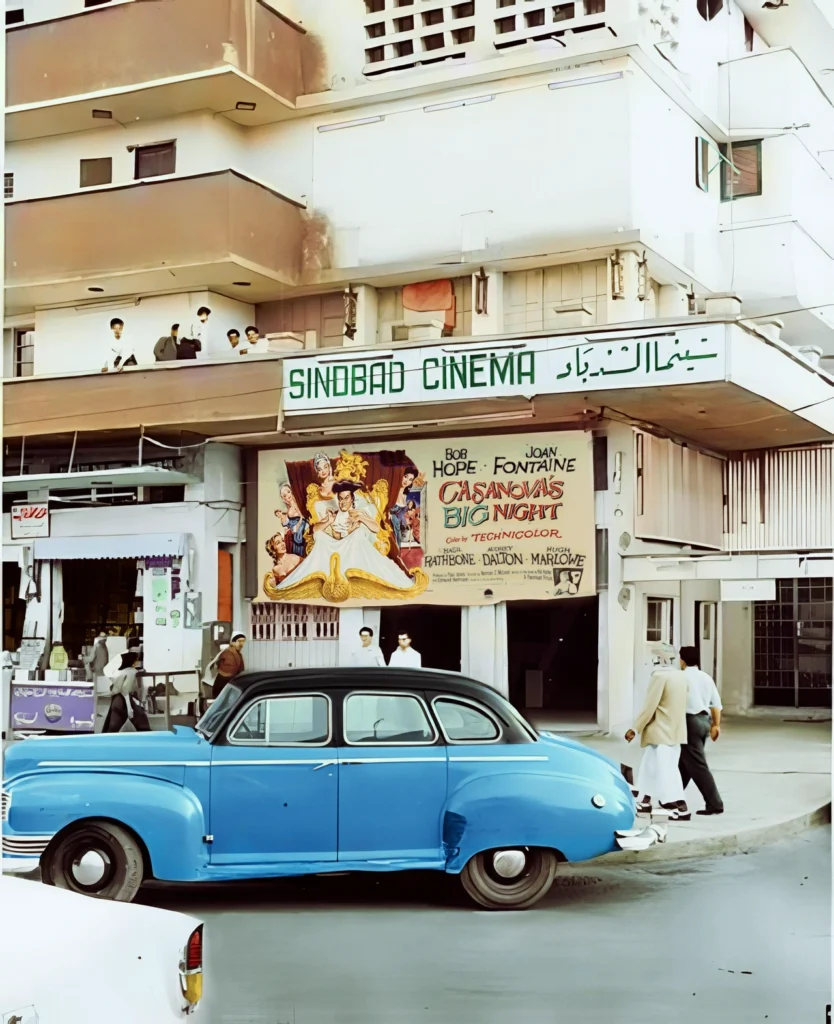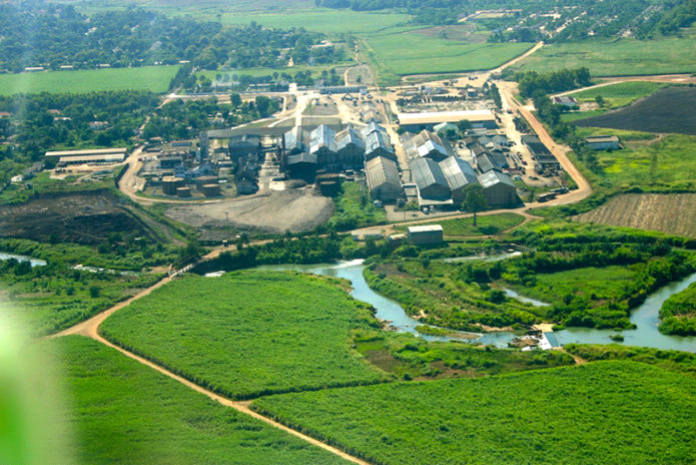The Euphrates breathes myth like few rivers on Earth. Consider that it rises in the Armenian highlands, not from canebrakes and undergrowth, but midst orchards of pistachio and plum. Somewhere on such a watershed must lie the garden of epic human beginnings, of the glories and defeats of human struggle. Imagine for a moment that a stream of such renown softened your fields, held at bay the desert and watered the sweetness of your figs and date palms. Where would be the end of psalms and processions and joy?
Downstream of these dreams we set out from Baghdad after counsel to cross the approaching desert by night. The ancients feared the Syrian desert for good reason, preferring to follow Mesopotamia northwestward to the Levant and then on to Istanbul/Constantinople. But our destination was Jerusalem, 1000 km. (600 mi.) due west, that would take us into the teeth of some of the harshest conditions on the planet. So, we set out in an evening haze following the river west, passing the lights of Fallujah and Ramadi where the route crossed the Euphrates and brought us to the desert’s edge.
Though a new, all-weather road lay before us, older history hung close there in the approaching night. Out on the face of the desert flickered the fires and lamps of a Bedouin world, where flocks bedded down for the night, black tents merging into darkness. Perched in the rooftop carrier of our car, it took no powers of imagination at all to believe we might be astride camels riding into the starlight.
From this nomad world came the spirituality to which many are heir: its promises of a land of abundance, its hunger for a home beyond sandstorms, its practices of stranger welcome, its attention to desert whispers and its fierce loyalties.

Other stories paralleled this route, too, like the remnants of an abandoned oil pipeline whose pumping stations now and then shone in the headlights. It had once brought the black gold of Kurdistan to the Mediterranean coast at Haifa. But the upheaval that followed the creation of Israel left this oil route orphaned in a geo-political desert. Here and there, where the highway and pipeline diverged, another feature appeared: what seemed at first to be discarded oil drums, but which we later recognized as markers to guide traffic across a landscape swept by shifting sand.
By noon the next day we had passed through the Iraqi-Jordanian frontier and, exhausted by the desert run, we fell asleep on the approaches to Amman, Jordan’s capital city. There we later discovered that though we had covered only 6000 kms. (3700 mi.) during three weeks on the road, our factory-installed tires were already worn to the point of blow-out. Clearly, we had strained our little VW Sedan while wandering rugged terrain in summer heat. A set of four new tires were our only souvenirs from this world-class city.

and capable of seating 6000 spectators. The ice show mentioned in the
narrative took place in the flat to the lower left of the theater. Modern
cultural events in the venue range from traditional Bedouin music to
modern rap. photo:Bernard Gagnon
Except one. As we set out toward the Dead Sea, we happened by Amman’s Roman theater. On a platform in front of the ancient orchestra, a crew was busy installing refrigerated flooring for a touring ice show. The wonder was not just the prowess needed to unveil an ice rink under a desert sun. It was also that the nomads would join the crowds observing this other-worldly performance. Their accounts of such an extravaganza would cast light on just how our planet becomes a single household of shared culture.
The westbound highway drops away from the desert plateau into depths like no other, down into the Rift Valley, lowest land elevation on planet Earth. At its floor, flanked by a ribbon of wild green, flows another river cherished by untold millions: the River Jordan, boundary of the Holy Land. The crossing at the King Hussein Bridge near Jericho sets the traveler’s feet on a celebrated pilgrim trail. It climbs upwards through stony wilderness toward Jerusalem, toward Al Quds, toward a citadel called Zion.
*In the summer of 1965, four school chums from Woodstock School in India, including writer Jonathan Larson, joined a handful of others for an epic road journey from Karachi, Pakistan to Rotterdam, Netherlands. Dubbed here as the Mother of All Road Trips, its itinerary of 8000 kilometers (5000 miles) in a Volkswagen sedan passed through some of the most dramatic topography on the planet, crossing a panoply of peoples, histories and cultures. A rising tide of conflict – even war – along the route would soon make such travels nearly unthinkable.



This was a good read and felt emotionally valid. The ME is such a maze of overlapping culture, environment and untold enigmas. That is what I caught from this passage. Even your car’s tires exposed the exhaustion of travel in the ME. Trying to do business there is as difficult as conducting a military campaign. This was an enjoyable thought provoking section of prose.
Hello, Marlin, akhi! Glad you enjoyed the read, and found it telling.You’ve had a front row seat in that neighborhood with insight far sharper than that of a traveler like me! For a region that once possessed dominating cultural and material wealth, it is painful to see how it is now so fractured and divided against itself, so humbled. (Do hold up on that ‘military campaign’!) Thanks for what you’ve invested there to make life sweeter. Heaven knows the common folk deserve a break!
Oil drums as traffic markers – I’ve sometimes wondered how drivers find their way across the desert of northern Chad, where no roads cut through the sand. Perhaps they do something like this!
Thanks for sharing the mother of all road trips.
Salut, Pierre! Good of you to stop by the blog! The best of it surely would have been to take on board one of the Bedouin who through some combination of intuition, dead-reckoning and the stars would have brought us safely through, while paving the way with some ripping good tales of survival. I’ve heard it said by others who have ventured naively into desert country, ‘Pray you cross paths with a nomad.’
This beautifully-written account evokes the mystery of the Middle East’s great rivers and then crossing the desert to reach the Holy Land. I traveled alone by 4th-class desert bus from Damascus to Baghdad in summer 1966 but by night. No paved road was involved. What an adventurous journey these four embarked upon! I look forward to reading more.